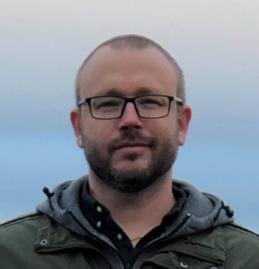
Martin P. Andersson took his PhD in Chemical Physics at Lund University in 2004, combining surface infrared spectroscopy with quantum chemical calculations. He then went on to receive a Marie Curie Individual Fellowship in computational heterogeneous catalysis at the Technical University of Denmark (DTU). After paternity leave with his two sons, Martin moved to the University of Copenhagen where he stayed for 9 years, before moving to his current position at the Department of Chemical and Biochemical Engineering at DTU.
Martin has performed various forms of computational surface physical chemistry, primarily using density functional theory for over 15 years. Applications have been wide ranging, including heterogeneous catalysis, adsorption and reactions at liquid-liquid and solid-liquid interfaces, including surfactant micelles, partitioning in micelles, as well as pKa predictions of molecules at interfaces as well as for small proteins.
Martin has also been active in developing new computational methods and theories. He created a model for prediction of liquid-liquid and solid-liquid interfacial energies using density functional theory and the COSMO-RS implicit solvent method which is very robust yet several orders of magnitude faster than molecular dynamics based methods. The method is implemented in the commercial program COSMOtherm.
He has made efficient models for calculating the free energy for ion exchange reactions in or on minerals and has developed an atomistic description of mineral growth and dissolution based on concepts from heterogeneous catalysis, which he is now using to develop predictive models for biosolubility of stone wool insulation.
Because of Martin’s interdisciplinary background combining theory and experiments, he has been able to combine various aspects of his research into new applications, and by actively working with experimentalists and people from industry, he has always strived to make his fundamental research useful beyond the academic scene. Martin is currently involved in several projects, where computational chemistry is integrated into larger scale chemical process design and intensification.
